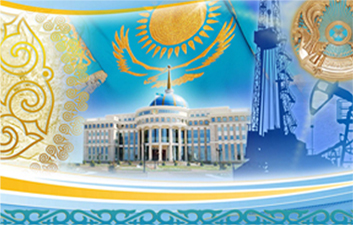Introduction
1. Law regulation theory of national and economic security
1.1. Economic security explanation
1.2. Constitutional and legal basis of economic security policy
1.3. Law instruments of economic security policy
2. Economic security policy and public administration.
2.1. Actors and bodies in economic security policy
2.2. Administrative and financial control
2.3. Improvements in public administration
3. Responsibility in Economic security law
3.1. Disciplinary and civil liability in Economic security law
3.2. Administrative and criminal liability in Economic security law
3.3. Legal technique and omissions in Economic security law
4. National security and national power
4.1. National security and assessing national power
4.2. Existing methods in measuring national powers of world countries
4.3. A new approach and modern method for measuring the national strength of developed, developing and poor countries of the world
Conclusions
Bibliography
Introduction
After 1991 Soviet Union collapse Kazakhstan and other Central Asia countries faced serious threats and challenges that have trampled almost all spheres of social life and economy. The population has been embroiled into severe economic decline, poverty, suffers and disappointments, losses and devastation. During formation of independent nations the think-tanks, scholars and experts turned for a concept of national and economic security.
The notion of economic security policy, which is an integral and vital part of the national security, becomes common on the second half of the 20th Century, and so far considered at intersection of jurisprudence, economy of risks and security theory.
Economic security itself is a set of measures to prevent damage of economic security objects during economic, entrepreneurial, foreign economic, financial, investment, intelligence, sabotage and other kind of activities threatening to economic security.
So long as the economy remains weak, it is difficult to withstand internal and external threats, and have a powerful army to afford the military security. The modern society concerns about unemployment, crime, capital leak, criminalization of the economy, corruption and other negative tendencies seriously.
The market economy means a severe struggle for sources among companies and also the states. Industrial and economic espionage (economic intelligence) becomes the most important tool in competition in order to obtain illegal and classified data in which the competing and opposing parties are interested in.
Any transformation of a social and economic system is always vulnerable because crisis that jeopardizes its very existence under certain circumstances. In some sense the matter of its security comes to the fore. It bells about administrative and legal economic security policy, the need for developing a concept of it. That is why the economic security is an integral part of the national security.
The notion of “national security” appears first in political vocabulary in 1904, when President Theodore Roosevelt has explained the accession of Panama Canal by national security concerns. The same year, the great British thinker Halford Mackinder formulated the Heartland Theory in his paper on "The Geographical Pivot of History". This is often considered as a founding moment of geopolitics as a field of study.
At the end of World War 2, Ferdinand Eberstadt was asked by Secretary of the Navy James V.Forrestal to analyze and make recommendations for improving coordination among US foreign policy, defense policy, and intelligence. The resulting report recommended the creation of the National Security Council, the Department of Defense, the CIA, and the Air Force; it also argued that these institutions should remain conceptually agile to meet any challenge or threat the the US might face. /International good faith: an introduction to the 10th anniversary issue; the review of Faith and international affairs, 2013, volume 11, page 1/
The follow-up years this question becomes pivotal in studies of American political scholars. At this time, the national security issues played a vital role in works of researchers of the strategic analysis school.
National security implies a close link between the security and the nation, that is, a certain territorial-state community based on the stable socio-political, economic, cultural and other relations. The nation includes a lot of ethnicities, ethnic communities. In this regard, the national security is an integral set composed of public relations and public consciousness, social institutions and their activities contributing or impeding purposes of national interests. The meaning of national interests consists of confronting and compensating any destructive influences inside or outside the society.
According to Japan Foreign Trade and Industry Ministry the economic security is a national economy’s capability to be protected, mostly by economic means against serious threats arising from international factors". The Japan document calls the four main priorities and factors in the 80-90s of the XX century threatening national industry:
1. Energy resources existence;
2. Mineral resources supply;
3. Food supply;
4. Maritime transport safety.








